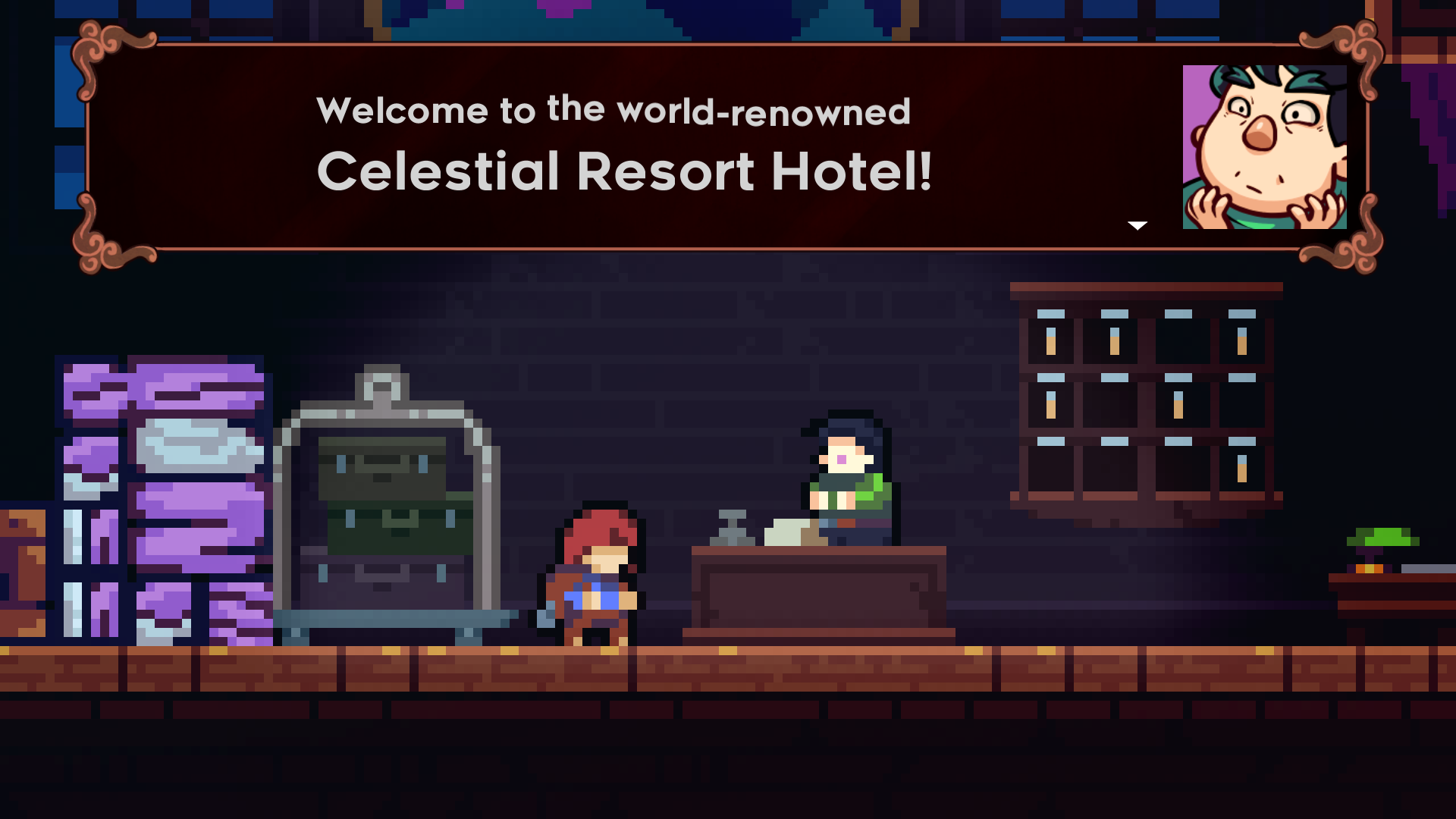What are the games you find yourself coming back to? Is it your favorite game from when you were a child? Is it the intriguing but flawed experience nobody but you seems to understand? Maybe it’s an arcade-style classic you’re trapped in a score war over that you really should play again. At the end of each year I like to think about which games have come up in my mind since I last saw their credits.
This year I couldn’t shake Celeste out of my head, and it’s one that I think more folks should play. Yes, we’ve already written about Celeste on this blog-- but in the spirit of looking back at the year that was, I want to make one last hail mary plea to get the game into more hands.

Celeste is a game I love in two distinct parts that blend together brilliantly. At its most basic level Celeste is a masocore platformer. It’s a game that gives you a core set of platforming controls and then throws you into death pits, spike walls, and other assorted lethal obstacles. On this level, Celeste is an absolute masterclass in platforming design. The controls feel better than almost any other game I’ve ever played, and the game fully explores a unique platforming concept in each of its levels before casting them aside and delighting you with a new challenge to master. Levels weave back and forth on themselves and hide secrets that take hours to fully discover, and you’re free to take at your own pace.
At one point about halfway through the game I was tasked with navigating through a gigantic, abandoned hotel. In order to progress on my adventure I had ended up having to clean up decades of wear and tear throughout this hotel that asked me to travel to branches of this level that looped back to a central hub several times. But why was I cleaning in a platformer? This brings me to the second part of Celeste that sets the game apart from the pack: its kindness.

In my previous recommendation, I highlighted the way the game positions itself in the mold of a challenging mentor. In the abandoned hotel area of the game, the level isn’t entirely abandoned. Inside of the hotel you’re joined by its ghostly caretaker named Mr. Oshiro. He’s a kindly man desperate for the player character Madeline to stay at his Celestial Resort, but he has his share of hangups-- and this is where I really fell in love with Celeste. Many of the characters you meet in Celeste are struggling with their own insecurities or anxieties, and the game asks the player to forgive themselves through forgiving Madeline and the other characters. Early on in the game there’s a tooltip that pops up and really summarizes Celeste’s kindness: it says, “You should be proud of your death count, because it means that you’re learning.”
Celeste is a brutally difficult game, by the end of my playthrough I had amassed hundreds of deaths across several hours. By asking you to accept that these failures are not something to be ashamed of, but steps on your path to growth, Celeste mirrors in the player the acceptance that Madeline needs to become the best version of herself.
So that’s my pitch. Celeste is a great game that synthesizes kindness, acceptance, and masocore mechanics. It’s got a top shelf soundtrack and gorgeous pixel art, there are characters to sympathize and fall in love with, and genuinely good life lessons to learn.
Celeste is available now.
Did you like this post? Tell us
itch.io is an open marketplace for independent game creators. It's completely free to upload your content. Read more about what we're trying to accomplish and the features we provide.
Leave a comment
Log in with your itch.io account to leave a comment.
Celeste became one of my all time favorite games when I picked it up on the switch earlier this year. I'll preface this by saying that I struggle with a fairly severe anxiety disorder that plagues me day by day. With that being said, Celeste is the first video game that actually helped my anxiety in a genuine way. Not helped like how most video games are a form of escapism, but truly helped me overcome and process my anxiety while going through the game. Celeste beautifully weaves a story of the protagonist overcoming her fears and insecurities with small text based story tidbits, but really cements the theme with the brilliant use of metaphor. As Celeste fights to conquer her anxiety she is literally fighting to climb the mountain. This really resonated with me. I was conquering my fears and scaling my own mountain while persistently battling the mountain in the game. The execution of this theme was so well done, and tie that together with super solid game play mechanics and controls as stated above and to me you have a masterpiece. I'll never forget my playthrough of Celeste and what it has taught me!